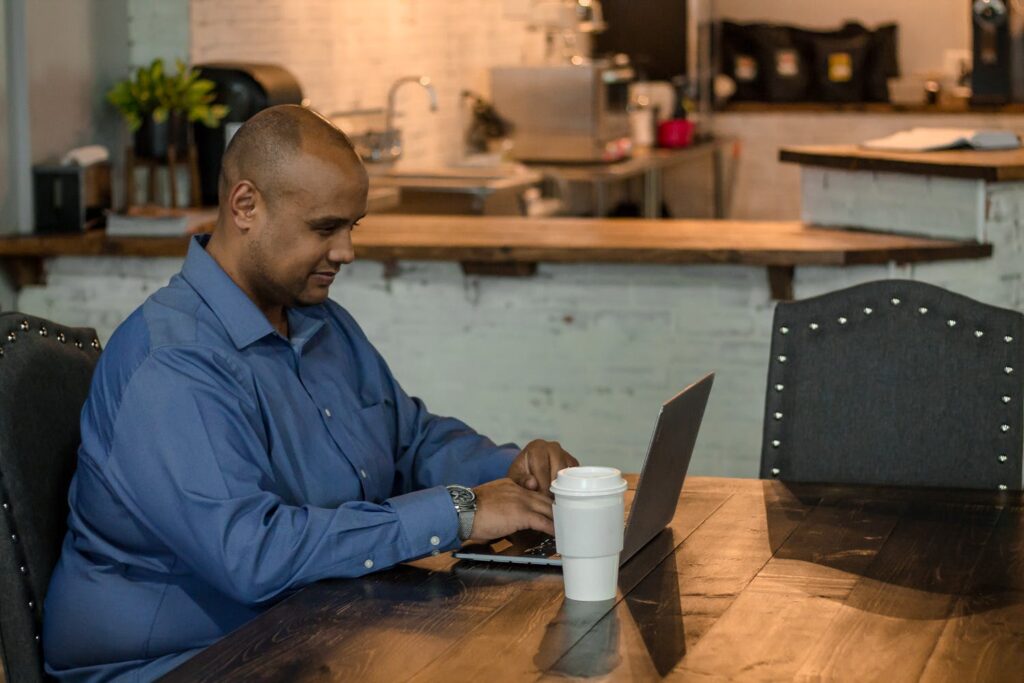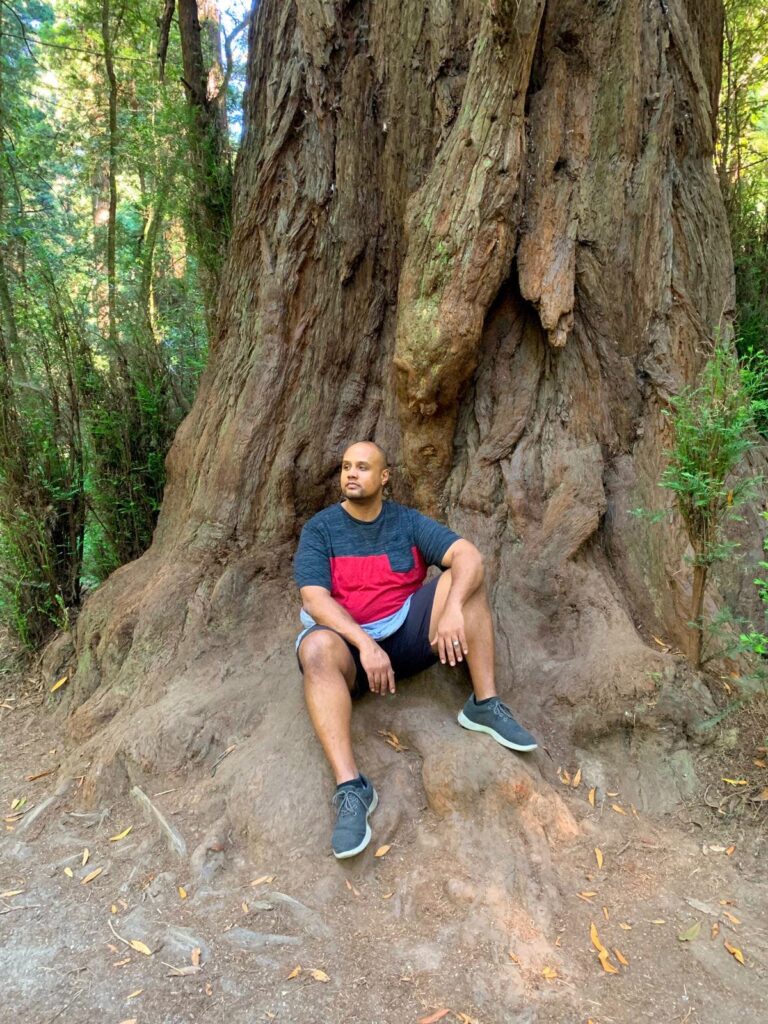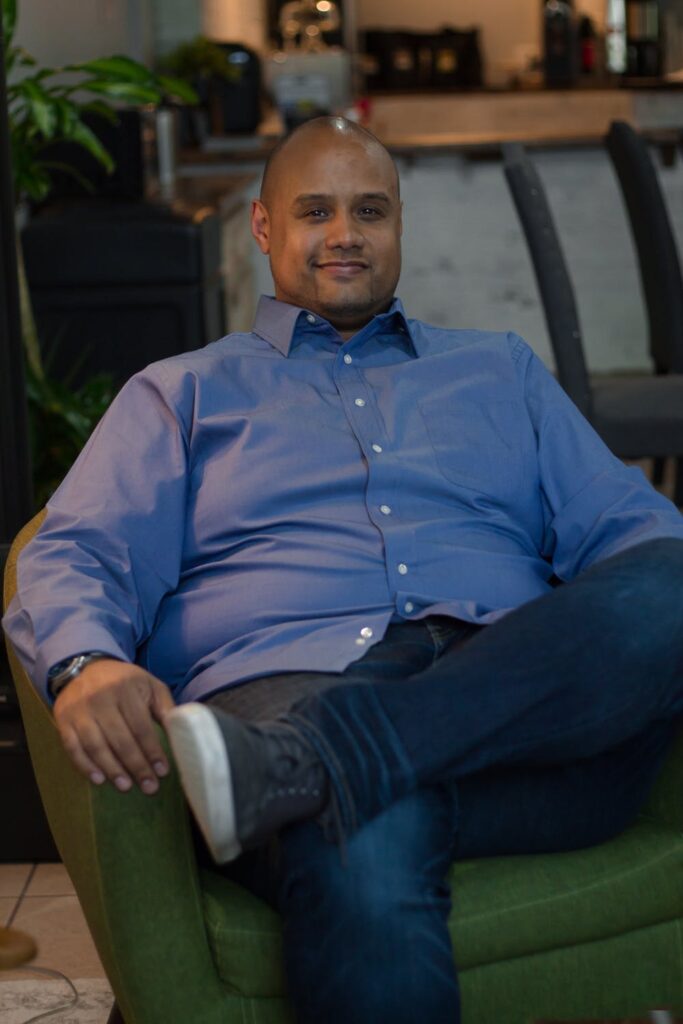How I’m Creating Financial Independence While Traveling
By: Kimanzi Constable
I never aspired to be a millionaire or run a large company; I just wanted to feel financially secure. But life in the U.S. can be expensive. I had three kids in my twenties, bought houses, owned cars, and paid for the always-rising cost of living. The jobs I worked made enough but didn’t offer a way to meet my financial goals.
A traditional 9-to-5 career wasn’t my long-term plan, so I started my first business in 2002 and my second in 2011. Entrepreneurship allowed me to make more money and save while opening up my schedule for travel opportunities as an independent consultant. And then, in 2021, I found myself as an empty nester. All three of my kids went to college and started their adult lives. I found I had even more freedom.

In this next chapter of my life, I wanted to experience the nomadic lifestyle. I started thinking through the costs of full-time travel, and when I ran the numbers, I realized I could live on less than $1,500 a month in many U.S. cities and even less if I traveled internationally.
Making the Dream a Reality
I decided to sell everything in my home in Lakewood Ranch, Florida—house, car, and everything I knew I didn’t need with this nomadic lifestyle. I thought it would be a hard decision, but it became easier when I realized stuff could always be replaced. I knew my ultimate goal was to travel and create new experiences.
It took a month, and the money I made gave me enough cushion to travel long-term without needing to make another dime.
I realized I’d spent much of my life working to pay for material possessions. But I spent hundreds of thousands of dollars on things that didn’t bring me fulfillment or help me reach my financial independence goals.

Nomad Life: Living on $1,500 a Month
As I planned this new life, I set a goal to live on no more than $1,500 a month. Major cities can be expensive, but the U.S. has gorgeous rural towns offering better costs of living. I’ve traveled and lived in Wisconsin, Georgia, Florida, New York, Puerto Rico, and South America.
Each city offered a chance to become immersed in different surroundings while not breaking my budget. I got to see stunning coastlines but also enjoy the convenience of city life. I tested my comfort zone by residing in places very different from growing up in Milwaukee. I could eat tasty but unfamiliar foods and be exposed to new ways of living. I saw firsthand how much beauty was within the U.S. These wouldn’t have been my experiences if I had kept my house in Florida and not chosen to break away from a traditional path and follow my dreams. Here’s how I achieved all of this with the goal of financial stability in mind.
1. I stay in economical Airbnbs
Hotels can be a nice luxury but are not practical for someone who travels full-time. There are budget motels that offer affordability, but they lack the comforts of home. For that reason, I exclusively stay in Airbnbs.
My housing budget never exceeds $800 per month. I choose Airbnbs with a full kitchen, bedroom, and other comforts like a dishwasher and laundry unit, and I select Airbnbs outside the closest major city to keep their costs lower. I want to feel at home—without paying what I spent on my mortgage.
2. I cook at home instead of eating out
With an equipped Airbnb, I cook for myself instead of eating at restaurants. As a full-time traveler, it wouldn’t take long for the costs of eating out to start adding up. But, more than that, cooking is therapeutic for me, and I get to control what ingredients are going into my body. There’s also something fun about cooking in different kitchens as I travel.
To keep inspiration alive, I watch cooking shows on YouTube and search the Internet for recipes. I walk to local grocery stores and shop for what I need instead of using food services or delivery apps. I’ll also buy groceries in bulk if I stay for a month or more. I budget around $300 a month for food.
3. I spend focused time working instead of living like a tourist
Vacation is the time to explore the place you’re visiting, stacking your days with sightseeing tours and experiences. But being a full-time traveler means balancing adventure while living everyday life.
Monday through Friday, from 5:30 am to 5 pm, I focus on working and growing my business. Since I’m without small children, I know the money I’m making will go towards my investments.
I take the weekends off to explore the city I’m in and do touristy things. Depending on where I’m located, I budget $150 a month or less for weekend activities. This schedule allows me to work while having dedicated “vacation time” and, ultimately, helps me avoid burnout.

4. I don’t work to buy material possessions
One of the most significant ways I’ve become financially independent in this lifestyle is by not buying “stuff.” I travel with one checked bag and a backpack—that’s all. The reality is I don’t need much to live well. For the remaining $250 in my monthly budget, I pay for Discovery Plus and YouTube Premium, and I keep a few dollars in case of overages in other areas.
Now that I’m living a life full of adventure and sightseeing, I take the money I make and invest it in my future. I’m creating wealth with the goal of owning multiple rental properties and taking the lessons from my journey to develop outstanding Airbnbs for generating income.
Maybe you’re a young person aspiring to travel while building wealth for your future, or perhaps you’re an empty nester like me. Know there’s a lot to see and experience in the world, and you can do so while creating financial independence. Travel is cheaper these days, and there are many ways to reduce costs. Don’t let your goals be a thought you never act on.
Facet Wealth, Inc. (“Facet”) is an SEC registered investment adviser headquartered in Baltimore, Maryland. This is not an offer to sell securities or the solicitation of an offer to purchase securities. This is not investment, financial, legal, or tax advice. Past performance is not a guarantee of future performance. The promoter/influencer of this endorsement was compensated by Facet Wealth, Inc. and that compensation may have included free or discounted planning services. The endorsement does not guarantee the same or similar experience.

